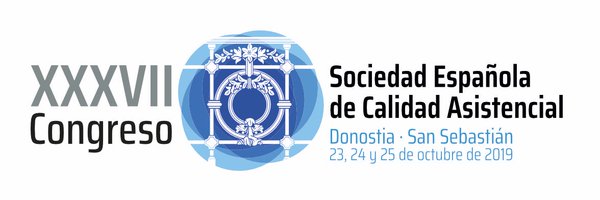From 23 to 25 October, the Kursaal Congress Centre in Donostia-San Sebastián was the venue of the National Congress held by AKEB, the Basque Association for Care Quality.
 The motto for this edition was “Generating value in healthcare. Challenges and commitments”, which sought to share the work values in care quality, improvement processes and security strategies in patients to make healthcare systems sustainable, safe and innovative. The congress brought together the members of the Spanish Society for Care Quality, healthcare professionals, companies, institutions and the citizenship to debate, propose and create opportunities for the improvement of healthcare systems. The three-day programme was structured around four thematic areas: Humanisation and empowerment; Digital transformation of the healthcare system; Organisational models: teams and people; and lastly, the Measurement of the value in the healthcare system and in society.
The motto for this edition was “Generating value in healthcare. Challenges and commitments”, which sought to share the work values in care quality, improvement processes and security strategies in patients to make healthcare systems sustainable, safe and innovative. The congress brought together the members of the Spanish Society for Care Quality, healthcare professionals, companies, institutions and the citizenship to debate, propose and create opportunities for the improvement of healthcare systems. The three-day programme was structured around four thematic areas: Humanisation and empowerment; Digital transformation of the healthcare system; Organisational models: teams and people; and lastly, the Measurement of the value in the healthcare system and in society.
In the space reserved to share communications, Kronikgune enjoyed the opportunity of presenting the implementation and scaling-up of the integrated care pathway for complex chronic patients (multimorbid patients). This pathway has been scaled-up and implemented recently in all the Integrated Healthcare Organisations (IHO) within Osakidetza. It seeks to improve integrated healthcare for these patients through the coordination among professionals of different care levels, while empowering the patient and caregiver and monitoring the patient at home. The pathway facilitates the coordination between healthcare professionals, improving compliance with the treatment protocol, promoting self-care and self-management, and increasing the awareness of the patient and the caregiver of their health status.
It is important to highlight the participation of multidisciplinary teams formed by managers and health professionals from all the IHOs, the Gorliz Hospital, the Santa Marina Hospital, and the Osakidetza Health Council and General Directorate to define the pathway. A collaborative methodology based on continuous improvement cycles (PDSA-Plan, Do, Study, Act) has been used to identify the areas of improvement to be implemented. This process is increasingly used by the healthcare systems to guide multidisciplinary teams in the identification of areas of improvement of programmes and care models, the exchange of experience and ideas, and the promotion of continuous learning among team members.
If you would like to learn more about the session, click here





